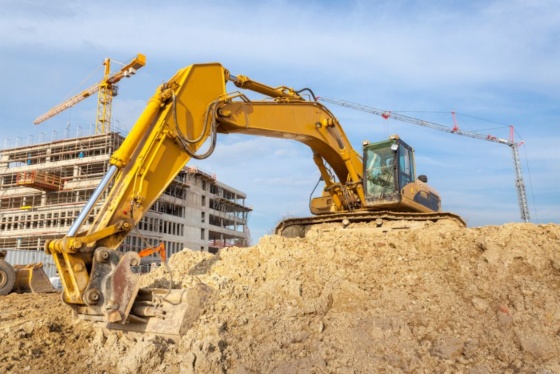Sand is a fundamental material in construction, serving various purposes from creating concrete foundations to landscaping. Here are some of the most commonly used types of sand used in construction, each with unique characteristics and applications that make them valuable for different reasons.
- Utility Sand – Derived from high-quality industrial quartz, utility sand has coarse, uniform grains in shades of beige, tan, white, gray, and brown. It compacts well, making it ideal for use as a base material for concrete, offering stability and durability. This type is suitable for corrosive environments, due to its non-reactive nature.
- Masonry Sand – This fine-grained, pure sand is used in creating concrete or mortar and for laying bricks, stones, or blocks, particularly in patio construction. It creates a neat, appealing, white line between bricks or blocks, enhancing outdoor aesthetics. Its fine texture and purity make it a preferred choice for visually appealing construction projects, contributing to the overall look of homes or other structures.
- Concrete Sand – Composed of granite rock, gneiss, or limestone, concrete sand is known for its angular granules, making it ideal when mixed with cement. It’s usually crushed and filtered to remove large fragments, making it suitable for use in walking paths, patios, and as filling material. Its coarse nature and versatility make it a vital component in construction, particularly for creating strong foundations and base layers in various projects.
- Fill Sand – Comprising extremely fine rock particles, fill sand is notable for its high compaction rating. It’s affordable and widely used in areas with drainage issues. Commonly used as a backfill around septic tanks and as a base for concrete, its adaptability makes it an excellent choice for various construction applications, especially in areas where drainage is a concern.
- Industrial Sand – High-purity silica sand, known as industrial sand, is used in a range of construction projects. It’s added to specialty cement, roofing shingles, and asphalt mixtures, providing flexible strength and packing density. Its chemical properties add anti-corrosion and weathering properties to sealants and epoxy-based compounds, making it a versatile and essential material in modern construction.
- Crushed Stone Sand – A potential successor to river sand, crushed stone sand is free from impurities and ideal for concrete use. Undergoing thorough crushing and testing, it is widely used in plastering and other construction applications, offering a reliable and pure sand option for modern construction projects.
- Fine Crushed Limestone Gravel – Typically coarse, this material is preferred for creating solid, compact surfaces when crushed. However, it’s not ideal for water drainage, but is more suitable for patios and supporting indoor flooring, providing a stable and reliable foundation for various structures.
- River Sand – Sourced from riverbanks and beds, river sand is popular for its fine texture and natural color, ranging from light to dark brown. Its less durable nature is offset by its attractiveness and ease of use in masonry and landscaping. It’s often used as backfill material and for filling gaps in various surfaces, contributing to level foundations.
- Manufactured Sand (M-Sand) – Created by crushing rocks, M-Sand is used for roads and buildings due to its strength and durability. Free from organic impurities, it’s a cost-effective alternative to natural sand. Its increasing popularity is due to its low production costs and suitability for a variety of construction applications.
- Pit Sand – Mined from open pits, pit sand is a coarse sand known for its binding qualities. Reddish to orange due to high iron oxide content, it’s used in producing concrete, mortar, and asphalt. Its durability and stability make it a valuable material in construction, especially where a durable material is required.
These diverse types of sand, each with distinct properties and applications, are vital aggregate materials for any construction company, sand and gravel company, or sand supplier. Their versatility and affordability make them indispensable in the construction business, providing solutions for a wide range of construction needs.
Brannan Companies, with over a century of service in Colorado, offers a comprehensive range of construction materials and services. Our portfolio includes aggregates, asphalt materials, Ready Mix concrete, and specialized construction services. With a rich history that began in 1906 with John W. Brannan’s gravel business, we have expanded our company significantly. Key milestones include the introduction of an asphalt division in 1943, a Ready Mix concrete division in 1995, and the establishment of Brannan Construction Company in 2003 for pipeline and utilities construction.
Today, Brannan stands out in the construction industry for our extensive experience, knowledgeable team, and wide-ranging services. We provide a one-stop solution for construction needs, backed by a commitment to safety, innovation, and customer satisfaction. Our history of contributing to major projects showcases our capability and reliability. We invite potential clients to learn about our story, view past projects, and discuss future collaborations.
For more information about the products and services we provide, contact us via our website or give us a call at 303-534-1231.

